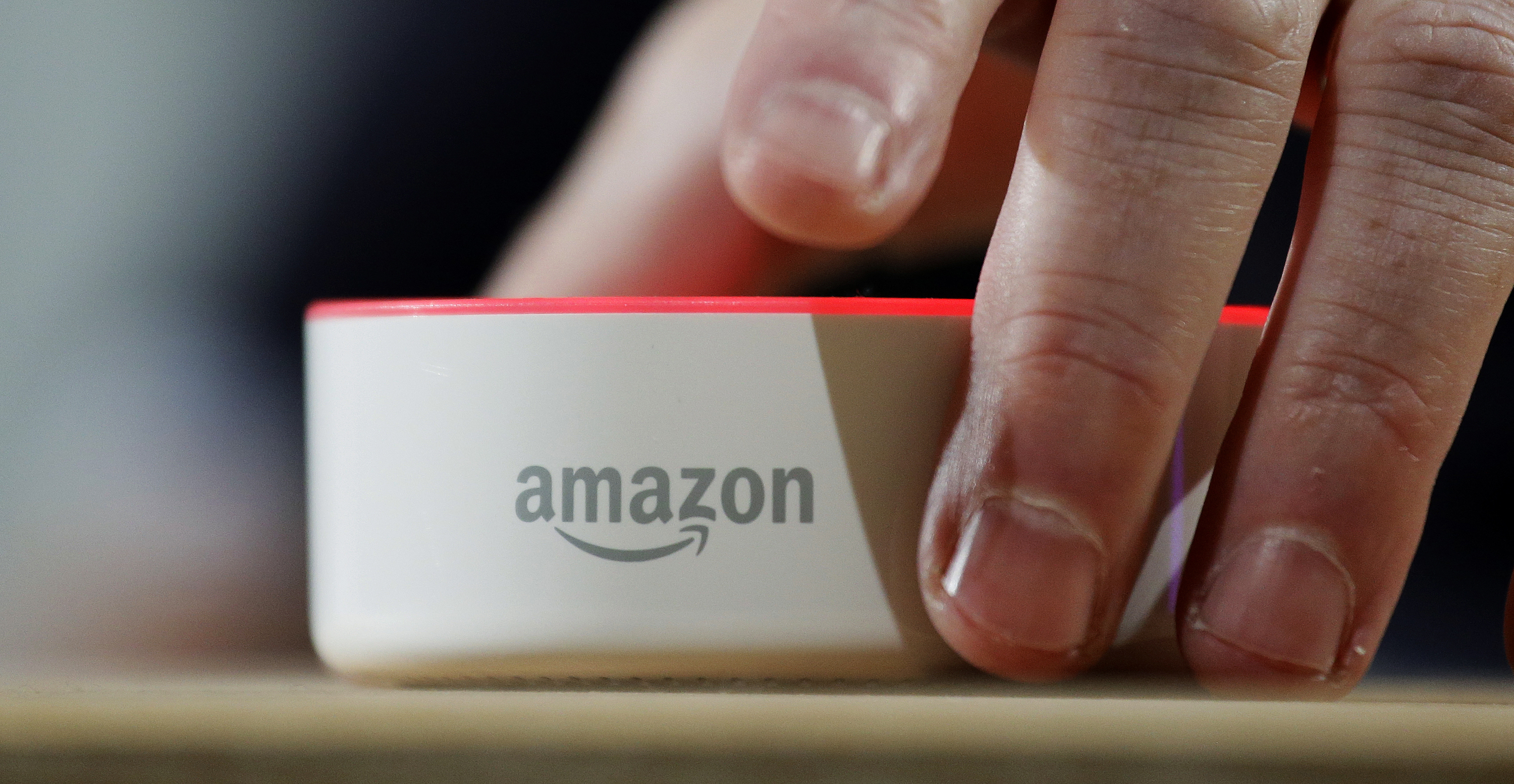- Amazon’s acquisition of the mesh WiFi router startup Eero marks yet another effort by the retail giant to integrate its products and services into the home.
- It follows other recent acquisitions that suggest Amazon wants to embed itself in every corner of the home, such as its purchase of the video-doorbell maker Ring and the upscale grocery chain Whole Foods.
- The deal also indicates that it’s getting even more difficult to purchase or use technology that isn’t run by the “big five” tech companies: Google, Amazon, Apple, Microsoft, and Facebook.
Over the past several years, Amazon’s virtual assistant, Alexa, has made its way into nearly every corner of the home – from smart microwaves to wall clocks, washing machines, and televisions. Now, with its latest acquisition of the mesh WiFi router startup Eero, Amazon is further cementing its presence in the home.
Amazon and Eero announced on Monday that the two companies have entered into a merger agreement, under which the online retail giant will acquire the mesh WiFi startup, although the terms of the deal have not been disclosed.
The announcement didn’t include any details about how or if Amazon plans to integrate Eero’s technology or devices into its own products. But Dave Limp, Amazon’s senior vice president of Amazon devices and services, said in a press release that the two companies “have a shared vision that the smart home experience can get even easier.”
Business Insider has reached out to Amazon for comment on more details regarding the deal and will update this story accordingly when we hear back.
The move makes sense for Amazon, which has emerged as a dominant player in the smart-home space in recent years thanks to the popularity of its Amazon Echo devices. Limp recently told The Verge that more than 100 million devices with Amazon's Alexa assistant have been sold to date since the Echo's launch in late 2014. It's unclear exactly how that compares with Amazon's primary competitor, Google, but the search giant recently said that it expected Google Assistant to be available on 1 billion devices by the end of January 2019.
Neither Amazon nor Eero have specified exactly what the deal means for either company's current or future products, but it's easy to imagine how having control over the WiFi experience could benefit Amazon.
The company has already been thinking about ways to simplify the process of connecting its Echo devices to other internet-connected appliances, as evidenced by the Echo Plus device it introduced in September 2017. The Echo Plus has a built-in smart-home hub that makes it possible to connect compatible products by simply saying "Alexa, discover my devices," rather than going through the traditional set-up experience.
With its acquisition of Eero, Amazon is no longer just a purveyor of smart-home devices - it owns a part of the experience that's crucial to making them all work. It wouldn't be surprising to see Amazon leverage Eero's products in a way that makes setting up WiFi-powered smart-home appliances more seamless.
In addition to the potential this acquisition has to bolster Amazon's foothold in the home, it also gives the company another option for subscription revenue outside of its $119 per year Prime service, which 62% of Amazon members pay for, according to Consumer Intelligence Research Partners. Eero sells a $99 per year Plus subscription that offers ad blocking, threat detection, and family-safe browsing options.
While neither Amazon nor Eero has given an indication that there will be any changes to this service in light of Amazon's new ownership, it's worth noting that the online retailer began offering Whole Foods discounts for Prime members after it acquired the supermarket in 2017 for $13.7 billion. (A new report from The Wall Street Journal, however, indicates that may no longer be the case.)
The Eero deal is the latest in a string of acquisitions that puts Amazon in nearly every corner of the home, from the kitchen to the front door. Last February news broke that Amazon would acquire the video-doorbell maker Ring for $1 billion in a move that was largely perceived as a means of furthering its dominance in the smart-home and retail spaces. Before that, Amazon's acquisition of Whole Foods gave it a pipeline into consumers' kitchens.
Amazon's acquisition of Eero also provides the online-shopping giant with a crucial piece of the smart-home market that could prove necessary for maintaining its status as a leader in smart-home technology. Both Google and Samsung, arguably Amazon's biggest rivals in the space, have long offered their own mesh WiFi routers that work with their own respective smartphone apps. Through these apps, users can view connected devices, block certain websites, and manage other features.
As such, this deal also raises a concern that's been brewing in recent years about whether companies like Amazon, Google, Apple, Microsoft, and Facebook hold too much power over our digital lives. For example, six out of the 10 most downloaded iPhone apps of 2018 are operated by Facebook and Google. Google's Android and Apple's iOS operating systems dominate the smartphone market, with Android accounting for 85.1% of the market and iOS claiming 14.8%, according to a report from the International Data Corporation published in December 2018.
Acquisitions such as this make it only more difficult to purchase or use technology that isn't made or operated by one of the "big five," further fueling the conversation about whether firms such as Apple, Google, Amazon, Microsoft, and Facebook are becoming too powerful.
The acquisition also comes amid rising privacy concerns over how large tech companies, particularly Facebook, are using the data they collect. Apple recently revoked multiple enterprise certificates from Facebook after TechCrunch reported that Facebook had been using Apple's Enterprise Developer Program to distribute an app that gathered data from the recipient's phones in exchange for payment. Before that, in August, Apple banned the Facebook-owned Onavo internet-security app because it broke the iPhone maker's data-collection rules because it monitors app activity.
For those worried about whether the acquisition would give Amazon a window into Eero users' internet activity, Eero's support account on Twitter issued the following response:
Hi Steve! eero and Amazon take customer privacy very seriously and we will continue to protect it. eero does not track customers’ internet activity and this policy will not change with the acquisition.
— eero support 👋 (@eerosupport) February 11, 2019
It's too soon to tell how the acquisition will impact products made by Amazon and Eero, if at all. But it's yet another sign indicating Amazon will become only more ubiquitous in the home.

